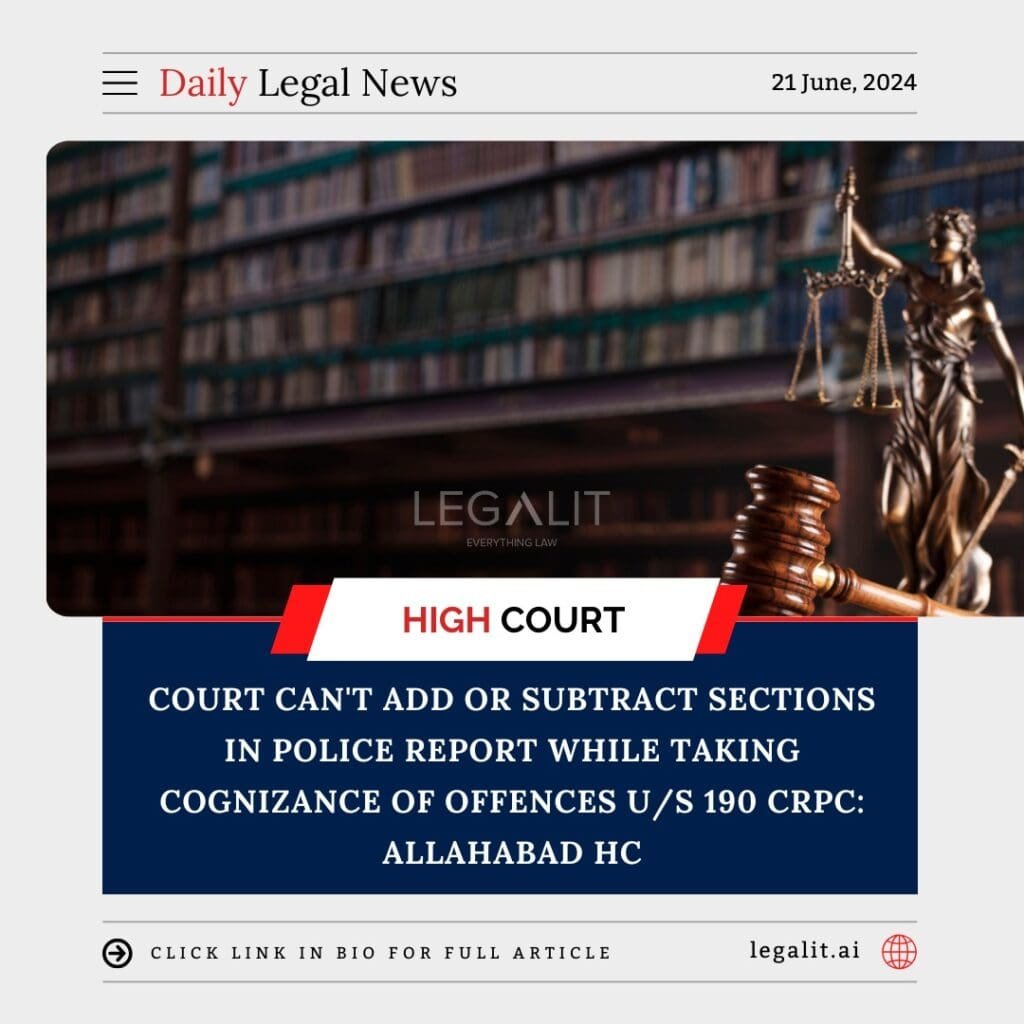
The Allahabad High Court has issued a significant ruling stating that magistrates cannot add or subtract sections in police reports when taking cognizance of offenses under Section 190 of the Code of Criminal Procedure (CrPC). This decision clarifies the boundaries of judicial discretion at the stage of cognizance and underscores the procedural integrity required in criminal cases.
Case Background
The ruling came in response to a case where the magistrate attempted to modify the sections applied in the police report while taking cognizance of the offense. The petitioner argued that such alterations exceeded the magistrate’s jurisdiction and could potentially lead to procedural discrepancies and unfair trials.
Court’s Observations
The Allahabad High Court highlighted that Section 190 CrPC allows magistrates to take cognizance of offenses based on a complaint, a police report, or information from any other person, or upon their own knowledge. However, it does not grant them the authority to alter the sections under which the offense is categorized. The court emphasized that the magistrate’s role at this stage is limited to examining the materials presented and deciding whether to take cognizance, without altering the framework established by the investigating authorities (Law Trend, Latest Laws, iPleaders).
Legal Implications
This ruling has significant implications for the criminal justice process:
- Maintaining Procedural Integrity: It ensures that the procedural integrity of the criminal justice system is maintained by preventing judicial overreach at the cognizance stage.
- Clear Separation of Powers: The decision delineates the distinct roles of the investigating authorities and the judiciary, ensuring that each functions within its prescribed limits.
- Fair Trial Safeguards: By restricting magistrates from altering sections, the ruling protects the accused from potential biases and ensures that charges are framed based on thorough investigations.